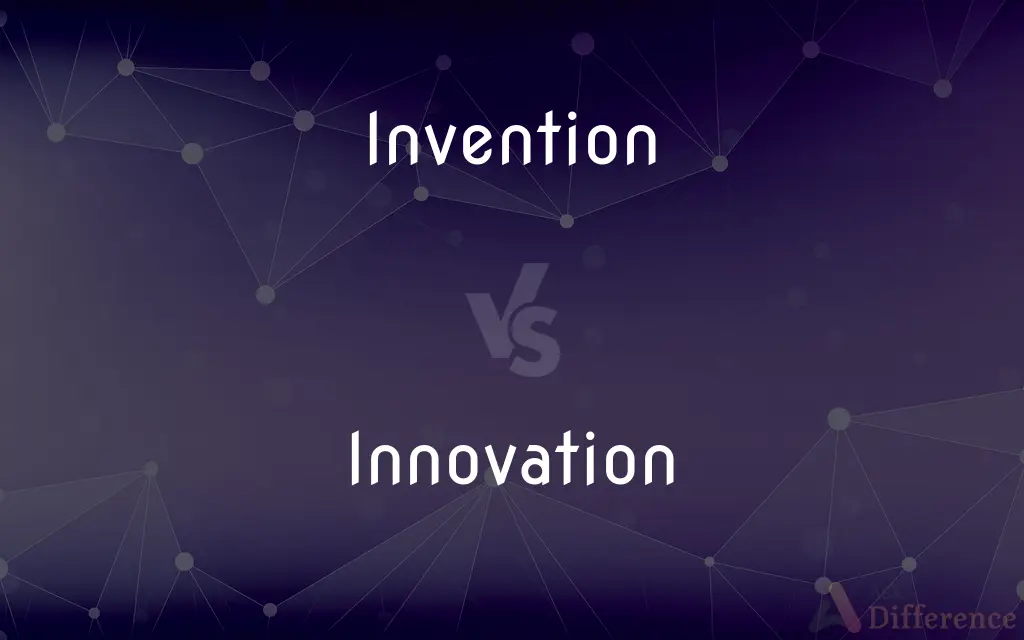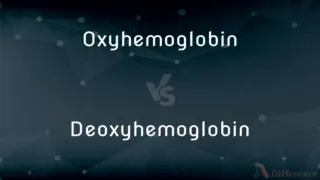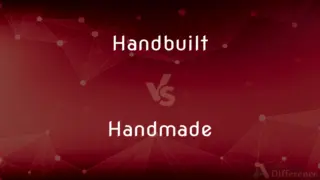Invention vs. Innovation — What's the Difference?
By Tayyaba Rehman — Updated on September 15, 2023
Invention is the creation of a new product, process, or idea. Innovation is the improvement or novel application of existing ones.

Difference Between Invention and Innovation
Table of Contents
ADVERTISEMENT
Key Differences
In the realm of creativity and progress, invention and innovation are pivotal concepts. An invention pertains to the conceptualization and creation of something entirely new. This "something" could be a product, method, or idea that didn't exist before. Invention lays the foundation, becoming a catalyst for future developments in various fields, from technology to art.
Contrarily, innovation primarily revolves around enhancing, adapting, or providing novel applications to pre-existing inventions or ideas. The main thrust behind innovation isn't just about the newness; it's about adding value, efficiency, or improving user experience. While an invention could be a prototype or a concept, innovation ensures its practicality, scalability, and market relevance.
To elucidate, the invention of the telephone by Alexander Graham Bell was groundbreaking. It was a pioneering move in communication. However, the transformation of that basic telephone into today's smartphones with multiple features, apps, and capabilities epitomizes innovation. While the core idea remains communication, the innovative approaches have augmented its utility manifold.
Furthermore, while every invention is unique in its right, not all inventions lead to significant innovations. An invention could remain dormant or unused if it lacks feasibility or market appeal. On the other hand, innovation, by refining and expanding on inventions, ensures that they find practical application and broader acceptance.
Comparison Chart
Nature
Creation of something new
Improvement or novel application of existing ones
ADVERTISEMENT
Focus
Originality
Value addition
Outcome
Prototype or new concept
Practical and market-relevant solution
Dependency
Independent of previous ideas
Often built on existing inventions or ideas
Scope
Can remain dormant if not improved
Ensures wider acceptance and practical application
Compare with Definitions
Invention
A novel concept or method introduced for the first time.
The airplane was a remarkable invention of the early 20th century.
Innovation
The process of improving or modernizing a product or method.
The innovation in smartphone technology happens rapidly each year.
Invention
The result of creative thought or experimentation.
The invention of the MRI machine has greatly enhanced medical diagnostics.
Innovation
A new approach or application enhancing value or utility.
Streamlining the supply chain was a crucial innovation for the company.
Invention
The formulation of new ideas or solutions.
The scientist's invention provided an alternative to conventional fuels.
Innovation
The act of introducing new ideas or methods to a domain.
The business's constant innovation kept it ahead of its competitors.
Invention
The act of creating a new product or process.
The invention of the light bulb revolutionized the way we live.
Innovation
Refinement or evolution leading to enhanced practicality.
The innovation in battery technology extended the device's lifespan.
Invention
An invention is a unique or novel device, method, composition or process. The invention process is a process within an overall engineering and product development process.
Innovation
Novelty introduced to an existing process or product.
Touchscreen was an innovation that transformed user interaction with devices.
Invention
The action of inventing something, typically a process or device
The invention of printing in the 15th century
Innovation
Innovation is the practical implementation of ideas that result in the introduction of new goods or services or improvement in offering goods or services. ISO TC 279 on innovation management proposes in the standards, ISO 56000:2020 to define innovation as "a new or changed entity creating or redistributing value".
Invention
The act or process of inventing
Used a technique of her own invention.
Innovation
The action or process of innovating
Innovation is crucial to the continuing success of any organization
Invention
A new device, method, or process developed from study and experimentation
The phonograph, an invention attributed to Thomas Edison.
Innovation
The act of introducing something new.
Invention
A mental fabrication, especially a falsehood.
Innovation
Something newly introduced.
Invention
Skill in inventing; inventiveness
"the invention and sweep of the staging" (John Simon).
Innovation
The act of innovating; the introduction of something new, in customs, rites, etc.
Invention
(Music) A short composition developing a single theme contrapuntally.
Innovation
A change effected by innovating; a change in customs
Invention
A discovery; a finding.
Innovation
Something new, and contrary to established customs, manners, or rites.
Invention
Something invented.
Innovation
A newly formed shoot, or the annually produced addition to the stems of many mosses.
Invention
The act of inventing.
The invention of the printing press was probably the most significant innovation of the medieval ages.
Innovation
The act of innovating; introduction of something new, in customs, rites, commercial products, etc.
Invention
The capacity to invent.
It took quite a bit of invention to come up with a plan, but we did it.
Innovation
A change effected by innovating; a change in customs; something new, and contrary to established customs, manners, or rites.
The love of things ancient doth argue stayedness, but levity and lack of experience maketh apt unto innovations.
Invention
(music) A small, self-contained composition, particularly those in J.S. Bach’s Two- and Three-part Inventions.
I particularly like the inventions in C-minor.
Innovation
A newly formed shoot, or the annually produced addition to the stems of many mosses.
Invention
(archaic) The act of discovering or finding; the act of finding out; discovery.
That judicial method which serveth best for the invention of truth.
Innovation
A creation (a new device or process) resulting from study and experimentation
Invention
The act of finding out or inventing; contrivance or construction of that which has not before existed; as, the invention of logarithms; the invention of the art of printing.
As the search of it [truth] is the duty, so the invention will be the happiness of man.
Innovation
The creation of something in the mind
Invention
That which is invented; an original contrivance or construction; a device; as, this fable was the invention of Esop; that falsehood was her own invention; she patented five inventions.
We entered by the drawbridge, which has an invention to let one fall if not premonished.
Innovation
The act of starting something for the first time; introducing something new;
She looked forward to her initiation as an adult
The foundation of a new scientific society
He regards the fork as a modern introduction
Invention
Thought; idea.
Invention
A fabrication to deceive; a fiction; a forgery; a falsehood.
Filling their hearersWith strange invention.
Invention
The faculty of inventing; imaginative faculty; skill or ingenuity in contriving anything new; as, a man of invention.
They lay no less than a want of invention to his charge; a capital crime, . . . for a poet is a maker.
Invention
The exercise of the imagination in selecting and treating a theme, or more commonly in contriving the arrangement of a piece, or the method of presenting its parts.
Invention
The creation of something in the mind
Invention
A creation (a new device or process) resulting from study and experimentation
Invention
The act of inventing
Invention
A unique device, method, or process.
His latest invention promises to conserve water in agriculture.
Common Curiosities
What is the primary purpose of an invention?
The main purpose of an invention is to introduce a new product, method, or idea.
Can an existing product be termed an invention?
No, an invention is typically something entirely new and previously non-existent.
Does every invention lead to innovation?
No, not all inventions lead to innovations; some may not see practical application or improvement.
Can the same person be both an inventor and an innovator?
Absolutely, an individual can both create new inventions and innovate upon existing ones.
Why is innovation important for businesses?
Innovation ensures market relevance, competitiveness, and the ability to meet changing consumer needs.
Is innovation always based on prior inventions?
While innovations often improve upon inventions, they can also offer new applications for existing ideas.
Share Your Discovery

Previous Comparison
Oxyhemoglobin vs. Deoxyhemoglobin
Next Comparison
Handbuilt vs. HandmadeAuthor Spotlight
Written by
Tayyaba RehmanTayyaba Rehman is a distinguished writer, currently serving as a primary contributor to askdifference.com. As a researcher in semantics and etymology, Tayyaba's passion for the complexity of languages and their distinctions has found a perfect home on the platform. Tayyaba delves into the intricacies of language, distinguishing between commonly confused words and phrases, thereby providing clarity for readers worldwide.














































